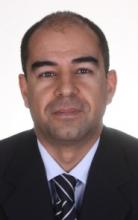Dr. Warren Hosseinion cofounded the ApolloMed Hospitalists group in 2001 and serves as CEO. At present, the group reports having 44 hospitalists and 130 primary care physicians throughout Los Angeles and in central California, with more than 8,000 beneficiaries assigned. Dr. Hosseinion has privileges at 10 hospitals and is also a physician adviser at 3 hospitals, where physicians meet regularly with case managers and review all the inpatients.
What effect will ApolloMed’s selection as a Medicare Shared Savings Program ACO have on hospitalists in your organization?
I believe that hospitalist medicine will become even more prominent in the near future. Accountable care, regardless of which acronym is used, is here to stay. A larger proportion of savings is going to come from the inpatient side. This is where hospitalists come in. In fact, I am certain that within the next 5 years, almost all admissions in the United States will be done by hospitalists.
In our ACO [Accountable Care Organization], many of the primary care physicians have asked us to admit their patients. Our hospitalists and inpatient case managers will collaborate with those PCPs [primary care providers] who still wish to admit their own patients. We will be monitoring and analyzing all inpatient data carefully, including length of stay, readmission rates, documentation, case-mix index, utilization, admission rates, patient satisfaction scores, and, obviously, quality metrics.
The accountable care model will translate into higher staffing needs for hospitalists. This will certainly be true for our ACO.
Are there particular new initiatives that you have rolled out in conjunction with being an MSSP ACO?
Over the past 2 years, ApolloMed has worked on several initiatives. These include completing a risk-assessment survey upon admission. These risk scores are used to identify high-risk patients, including those at risk of being readmitted.
Another initiative is our postdischarge care program, where case managers are responsible for setting up an appointment for patients with their PCPs within 72 hours of discharge. They will call patients to make sure they are complying with discharge instructions, including medications, diet, and follow-ups. We are also in the process of setting up four postdischarge/high-risk clinics for a health plan.
We have also established a 24/7 physician call center. This is being used for transferring health plan and medical group patients from out-of-network hospitals to contracted hospitals.
We have also done root-cause analysis upon admission to determine why patients are coming to the hospital.
So, what’s next?
On the outpatient side, we are starting to work on getting our PCPs onto an EMR [electronic medical record] system and to electronically integrate those who already have an EMR system. Our hospitalists have been using our proprietary cloud-based solution for several years now.
We are developing a high-risk program, and will assign case managers to all these patients. We plan to engage our patients with monthly patient-education seminars, have a portal where patients can access their records, and provide self-management kits for the most common chronic diseases. We also look to develop a visiting home physician program and dedicated skilled nursing facility physicians.
Why did you become a hospitalist?
I enjoy taking care of acutely ill patients and appreciate seeing quick results. This is the most satisfying job there is, in my opinion.

